 Ellison and Son
Ellison and Son
Entry Category: Law
 Ellison and Son
Ellison and Son
Ellison, Clyde (Lynching of)
Ellison, Eugene (Killing of)
Eminent Domain
Emmet Lynching of 1891
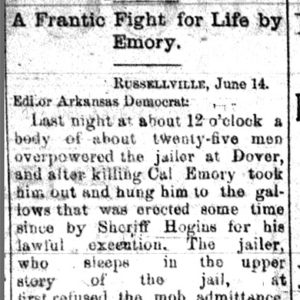 Cal Emory Lynching Article
Cal Emory Lynching Article
Emory, Cal (Lynching of)
England, Albert (Lynching of)
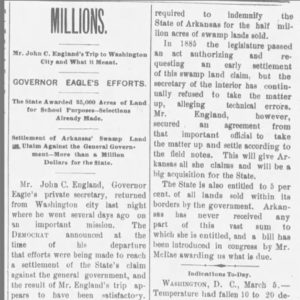 John England Article
John England Article
English, Elbert Hartwell
Enon Massacre
Epperson v. Arkansas
 Susan Epperson
Susan Epperson
 Susan Epperson
Susan Epperson
Equal Rights Amendment (ERA)
 ERA Ephemera
ERA Ephemera
Erwin, Judson Landers, Jr.
Eskridge, Thomas P.
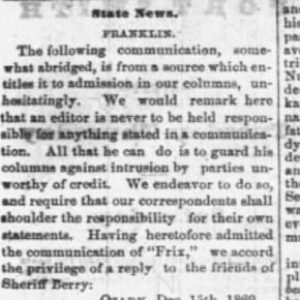 Eubanks Murder Article
Eubanks Murder Article
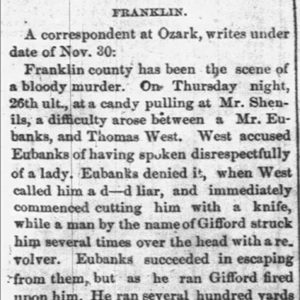 Eubanks Murder Article
Eubanks Murder Article
 Eugene Ellison
Eugene Ellison
Evans, Timothy C.
Executions of April 2017
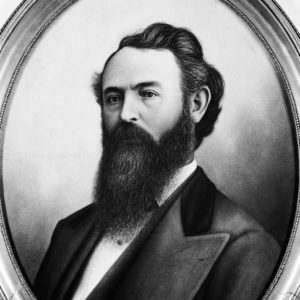 James Fagan
James Fagan
Fairchild, Barry Lee (Trial and Execution of)
Fairchild, Hulbert Fellows
Farmer, John (Lynching of)
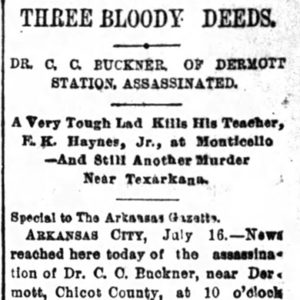 John Farmer Lynching Article
John Farmer Lynching Article
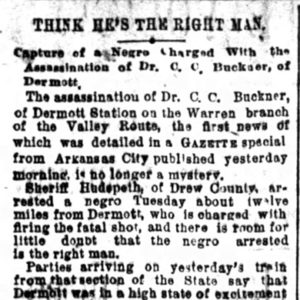 John Farmer Lynching Article
John Farmer Lynching Article
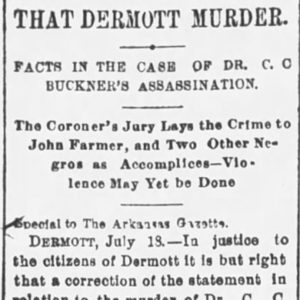 John Farmer Lynching Article
John Farmer Lynching Article
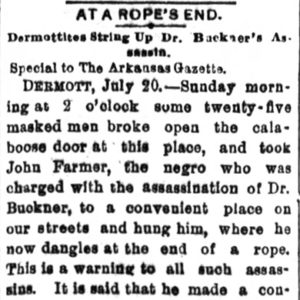 John Farmer Lynching Article
John Farmer Lynching Article
Farrar, Clayton Ponder (Clay), Jr.
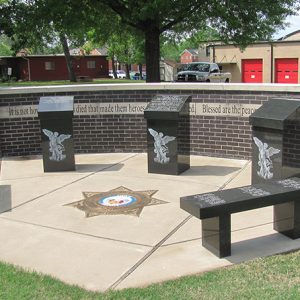 Faulkner County Sheriff Monument
Faulkner County Sheriff Monument
 Fayetteville Federal Courthouse
Fayetteville Federal Courthouse
Featherstone v. Cate
 Federal Correctional Institution
Federal Correctional Institution
Feild, William Hume “Rush” Sr.
Fendler, Oscar
Feuds
Filmore, Isaac (Execution of)
Finney v. Hutto
aka: Hutto v. Finney
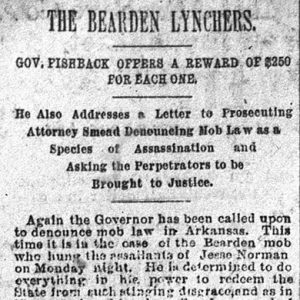 Fishback Lynchings Letter
Fishback Lynchings Letter
Fleming, Sam (Lynching of)
Fleming, Victor Anson (Vic)
Flemming, Owen (Lynching of)
Flowers, William Harold
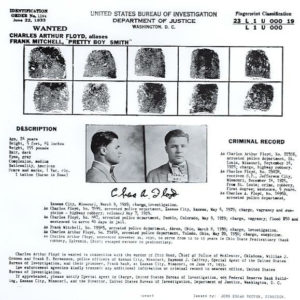 Floyd Wanted Poster
Floyd Wanted Poster
Flynn-Doran War
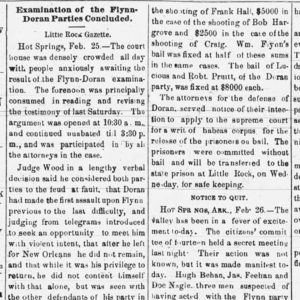 Flynn-Doran War Story
Flynn-Doran War Story




